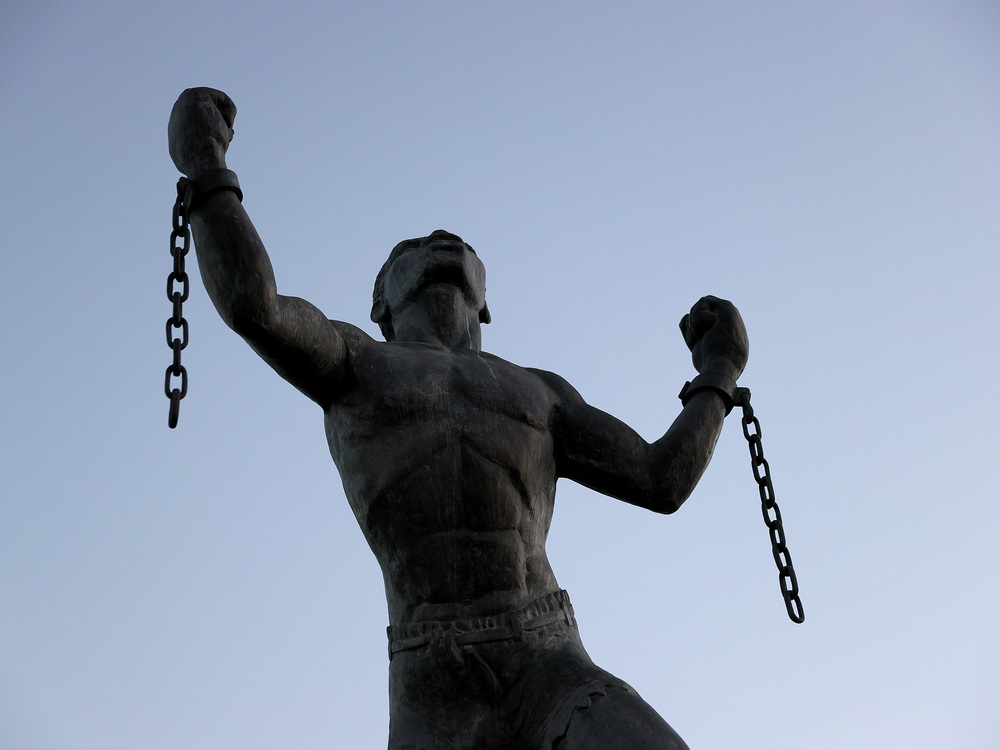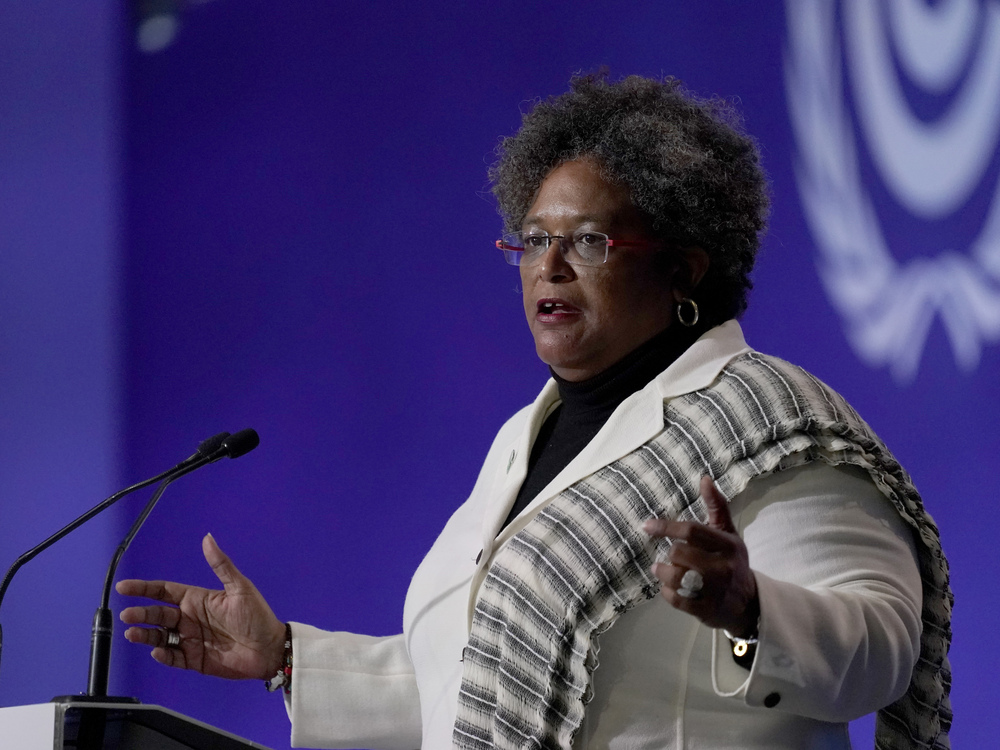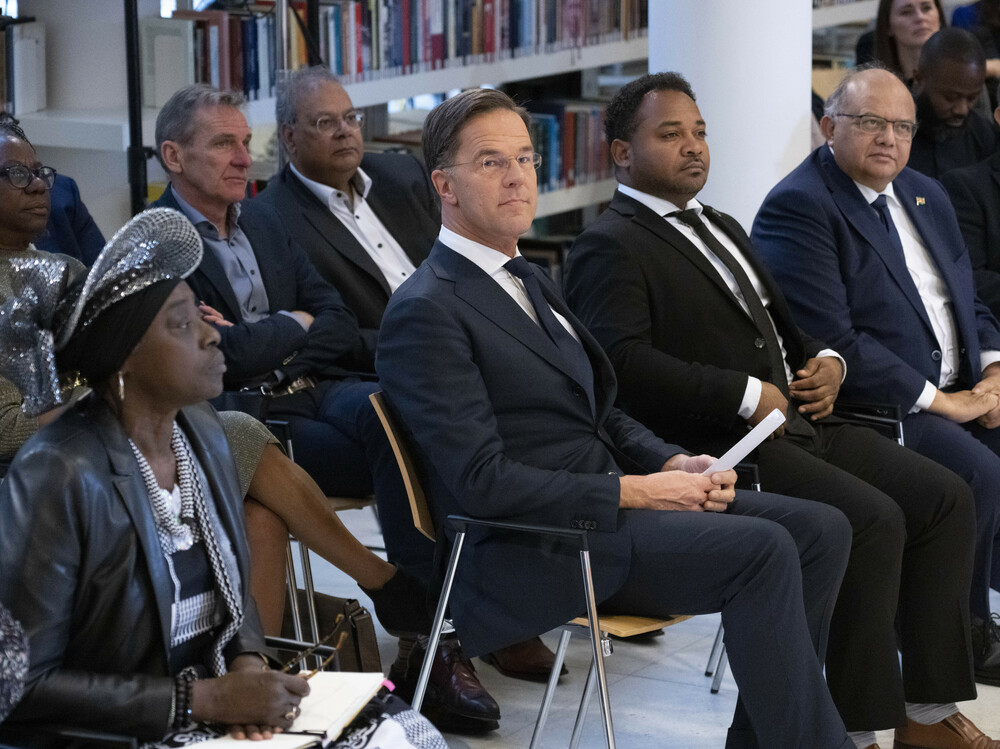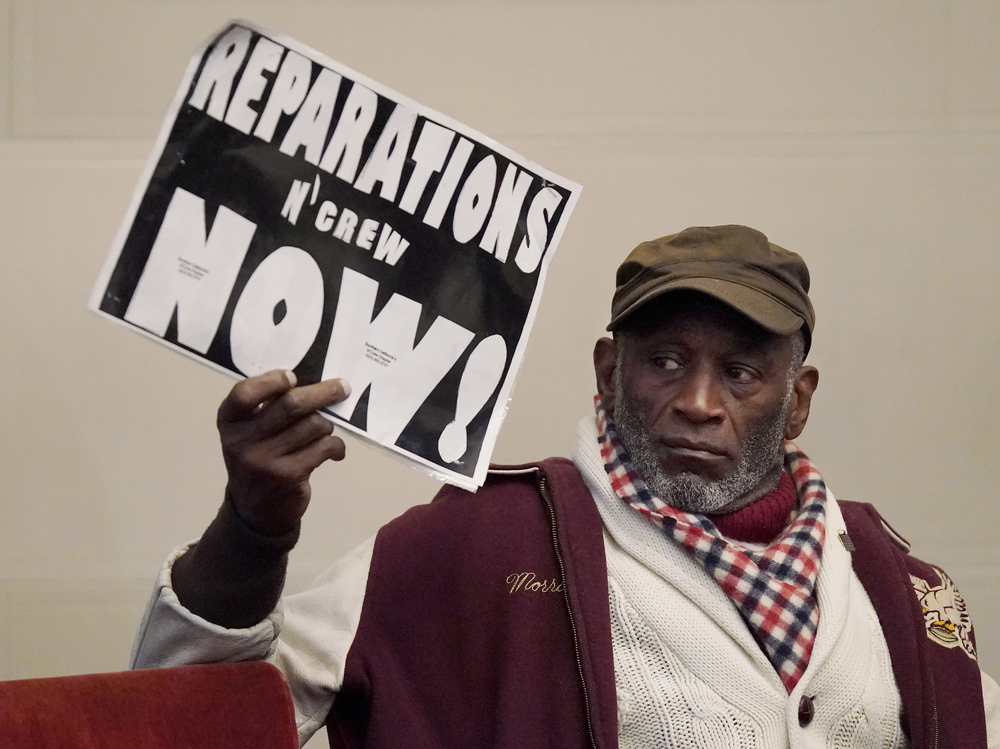
A kerfuffle about whether British actor Benedict Cumberbatch will have to pay reparations to descendants of slaves in Barbados made headlines this week. It's still unclear who exactly may become subject to legal action to atone for atrocities of slavery. But online buzz over famous Brits' ties to slavery, like Cumberbatch's, put wider attention on the fight for reparations in the Caribbean.
Late in December, The Telegraph, a British newspaper, quoted individuals involved in reparations efforts in Barbados. According to the story, those advocates want descendants of past slave owners on the island nation, including Cumberbatch, to pay damages.
It's true that Cumberbatch's family owned a plantation on the island and several slaves hundreds of years ago. But David Comissiong, the deputy chairperson for the Barbados National Task Force on Reparations, clarified this week in an op-ed on Barbados Today that, to date, there has been no official reparations claim leveled against a European family.
Representatives for the actor said he had no comment for this story.
However, the case may be different for British Conservative politician Richard Drax, whose family still owns a plantation and land in Barbados. The Tory politician's case has been forwarded to the Barbados National Task Force on Reparations for further consideration, Comissiong wrote.
A representative for Barbados Prime Minister Mia Mottley declined to comment, saying the nation's leader will respond to questions on this issue "at the appropriate time."
European nations ran the transatlantic slave trade from the 16th century until the 19th century in the Caribbean. That era can be tied to long-term effects of racism, xenophobia, and ongoing inequality, said Luke Moffett, a reader at Queen's University Belfast and an expert on reparations and human rights law.
More than 60 years since decolonization in the area, nations like Barbados still struggle, Moffett said. And yet, he said, most European nations refuse to apologize, atone or offer any kind of reparations for the past.

Slavery's impact in the Caribbean
Slavery and violence defined British imperial control in the Caribbean. It started as early as 1627 on Barbados, when the British brought people taken largely from West Africa. They enslaved them to work on sugar plantations for hundreds of years.
"The slave trade was seen as a way of doing trade for the Western world. But it was built on violence and exploitation of millions of people that lasted for generations and hundreds of years," Moffett said.
Barbados finally achieved independence in 1966. But it was only in November 2021 that the island nation eliminated the British monarchy as head of state.

Historical records are able to tie current wealthy families in the U.K. to slave-owning ancestors in Barbados.
The wealthy Drax family still owns and operates Drax Hall, a sugarcane plantation in Barbados. It was built in the 17th century and worked by enslaved people for centuries, a Guardian article uncovered in 2020. The family also owned a plantation in Jamaica, which may also pursue damages from Drax.
The Telegraph reports that the Cumberbatch family bought a plantation in Barbados during the 18th century where 250 slaves worked. The estate made the family a good deal of money until the abolition of slavery about a century later.
Slow apologies, and no money
In the U.S., some local governments in California and the city of Evanston, Ill., have pursued reparations programs for Black citizens. They have proposed a number of ways to remedy the inequality wrought by slavery, segregation, and discrimination against the Black community.
"With reparations, it's a way for those who have been victimized and those who have victimized them to come together and chart a new path, and to acknowledge the past and still move forward," Moffett said.
CARICOM, a political and economic union of 15 Caribbean states, created a Reparations Commission and a 10-point plan for reparatory justice years ago. The plan calls for, among other things, a full, formal apology from European governments, a land development plan and debt cancellation.
That kind of apology hasn't happened yet. Instead, in 2015, the British government finally paid off debt incurred to compensate slave owners when slavery was abolished. But, as Moffett notes, the British government and other governments are slow to apologize. No sort of real financial payoff has been granted to Barbados or other former colonies who were victims of the slave trade.

Last month, for example, Dutch Prime Minister Mark Rutte apologized on behalf of the government of the Netherlands' role in slavery and the slave trade. But Rutte told reporters that the government was not going to offer any compensation to descendants of enslaved people.
So what would an appropriate reparations program look like for a country like Barbados? It depends on what the people of Barbados think, according to William A. Darity, a professor and the director of the Samuel DuBois Cook Center on Social Equity at Duke University.
Darity has written extensively on the issue of inequality and reparations for Black people. He and his wife, A. Kirsten Mullen, wrote From Here to Equality: Reparations for Black Americans in the Twenty-First Century.
"In Caribbean countries, you basically have a predominantly Black population that's descended from folks who were enslaved. So you then have a situation in which reparations could be something that takes the form of monetary support to improve the entire economy, or the economic conditions of the entire population," Darity said.
This is in contrast to the U.S., where Black Americans with enslaved ancestors are a numerical minority, he said.
Can Barbados pursue an individual for reparations?
In the absence of independent action by individual countries, can descendants of slave owners be liable in court to pay reparations? Advocates and experts in the study of reparations don't think so.
Take the case of Richard Drax, the British politician whom representatives from Barbados say may be subject to a civil claim or arbitration. It would be incredibly difficult to get a case past an international court, Moffett said.
"I don't see how they would be able to make a legal claim, as he would have a valid land title, and any civil wrongs cannot be inherited, especially given the statute of limitations," Moffett said. "So unless the Barbados government passes a new law to allow such claims, it is not going to go anywhere."
Darity believes it's best to go after the nations that are most culpable for the wrongs committed against enslaved people.
"This is not a matter of individual guilt," he said. "It is a matter of responsibility on the part of the nations that made [slavery] legal, that engaged in colonization, and produced the kinds of inequities that exist in the world today that put people who are descendants of persons who were enslaved at a gross disadvantage in terms of life opportunities."

It may be difficult for Barbados and other nations to get what they believe they are owed. But it may not be impossible with changing attitudes toward reparations, Moffett and Darity said.
The Voice, the only British national Black newspaper in the U.K., reported on Tuesday that, in a survey of 2,000 people asked about their feelings on the government paying reparations to Black Brits, 61% of Black respondents backed the move, while only 24% of white ones did.
In the U.S., Pew Research found that 77% of Black adults think the descendants of people enslaved in the U.S. should be repaid in some way, compared to 18% of white adults.
Darity points to the "moral reckoning" of the summer 2020 racial justice protests as an impetus behind changing feelings on reparations. And Moffett believes the events of 2020 and the Black Lives Matter movement can also be credited for some of the work happening now in Europe.
Darity said, "There is a degree of legitimacy that the reparations conversation now has, that I don't think it had earlier in my life into the beginning of the 21st century."







